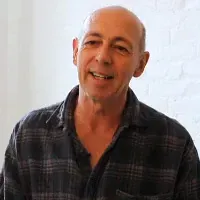ScreenTalk: Stuart Dryburgh

Cinematographer Stuart Dryburgh is the eye behind some of the most iconic images in New Zealand film.
Since shooting The Piano, Dryburgh has been working overseas (he shot Bridget Jones’ Diary, and the Martin Scorsese-directed pilot of Boardwalk Empire), returning only to film In My Father’s Den in 2004.
His first job in the industry was as a “general assistant” on Middle Age Spread. From there he worked as a gaffer on films including Smash Palace, Goodbye Pork Pie and Came A Hot Friday, before becoming a fully-fledged cinematographer, learning much of what he knows from his mentor, Alun Bollinger, who operated the camera for him on The Piano.
In this ScreenTalk interview shot at his home in Brooklyn, New York, Dryburgh talks about:
- Making his first film with the help of Lenny Lipton’s book Independent Film Making
- The challenges of lighting a night shoot on Queen Street; and using film stock ordinarily reserved for news reporters
- Meeting Jane Campion on the set of Queen Street
- Learning about method acting as a young gaffer on Smash Palace
- Being put in charge of lighting on Vigil under “über-prepared” director Vincent Ward
- Getting creative with a “mass of messy light” on Alison Maclean’s short film Kitchen Sink
- The reaction that Kitchen Sink gets overseas
- Reuniting with Campion for An Angel At My Table
- Using “good, old-fashioned trick photography” on An Angel At My Table; and how they made Janet Frame’s red hair “pop” on-screen
- His thoughts on the “wonderful conundrum” that is Jane Campion
- How he knew The Piano was going to be something special
- Getting the call from Lee Tamahori to shoot Once Were Warriors
- Why In My Father’s Den was one of the easiest films he has ever been involved with
- The advantage of being a Kiwi on American film sets
This video is available on YouTube to embed and distribute via a Creative Commons licence.
NZ On Screen: Interview and editing: Gemma Gracewood Camera: Mark Weston